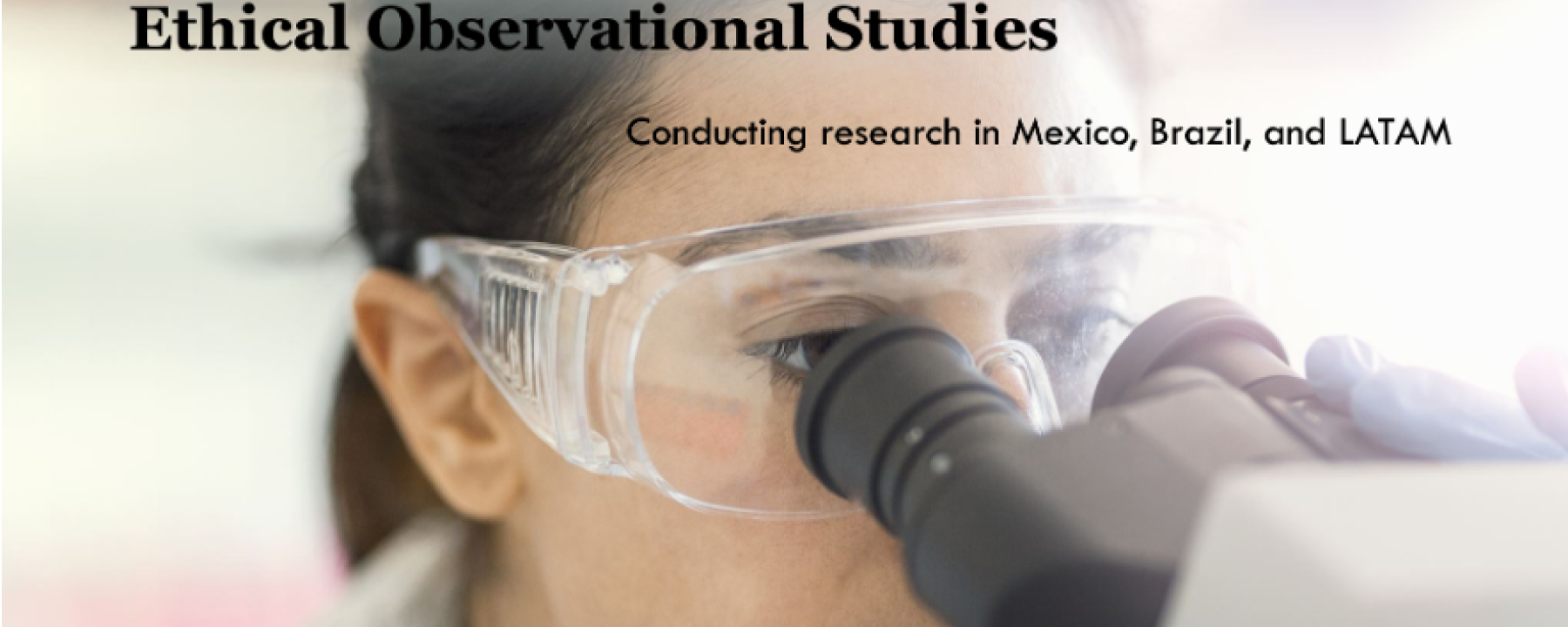
Ethical Considerations in Conducting Observational Studies in Mexico, Brazil, and LATAM
Observational studies (non-interventional studies) play a crucial role in understanding the real-world effectiveness and safety of medical treatments and interventions. However, conducting these studies, especially in diverse regions like Mexico, Brazil, and the broader Latin American (LATAM) region, requires careful attention to ethical considerations. This article explores the ethical landscape of observational studies (non-interventional studies) in these regions, highlighting key principles, challenges, and best practices.
Ethical Principles in Observational Studies (Non-Interventional Studies)
- Respect for Persons: This principle emphasizes the importance of treating individuals with dignity and respect, obtaining informed consent, and protecting the privacy and confidentiality of study participants. In Mexico, Brazil, and LATAM, cultural sensitivities and varying levels of health literacy must be taken into account to ensure that participants fully understand the study's purpose and their rights.
- Beneficence: Researchers must ensure that their studies maximize potential benefits while minimizing harm. This involves careful design and ongoing monitoring to avoid exposing participants to unnecessary risks. In regions with varying healthcare quality, ensuring that participants receive appropriate care during and after the study is crucial.
- Justice: This principle focuses on the fair distribution of the benefits and burdens of research. In Mexico, Brazil, and LATAM, special attention must be paid to including diverse populations, particularly marginalized and underserved communities, to ensure that the findings are generalizable and beneficial to all.
Key Ethical Challenges
- Informed Consent: Obtaining truly informed consent can be challenging in regions with diverse languages, cultural practices, and varying levels of education. Researchers must use clear, culturally appropriate communication methods to explain the study and ensure that participants understand their rights and the study's implications.
- Privacy and Confidentiality: Protecting participants' personal health information is paramount. In countries with different regulatory frameworks and varying enforcement of data protection laws, researchers must implement robust measures to safeguard data and comply with local regulations.
- Regulatory Compliance: Navigating the complex regulatory environments in Mexico, Brazil, and LATAM can be daunting. Researchers must be familiar with local laws, guidelines, and ethical standards, which may differ significantly from those in other regions. Collaboration with local ethics committees and regulatory bodies is essential to ensure compliance.
- Cultural Sensitivity: Understanding and respecting cultural differences is critical in designing and conducting observational studies (non-interventional studies). Researchers must engage with local communities, healthcare providers, and stakeholders to build trust and ensure that the study is culturally appropriate and sensitive to local norms.

Leveraging Comprehensive Services
Beyond traditional observational study methodologies, researchers in Mexico, Brazil, and LATAM have access to a wide range of services to support their research endeavors. These include:
- Data Generation Services from Non-Interventional Studies: Providing real-world evidence through data collected outside the context of randomized controlled trials.
- Execution of Phase-IV Studies: Conducting post-marketing surveillance to monitor the long-term safety and effectiveness of treatments.
- Creation and Maintenance of Medical Information Contact Centers: Offering reliable and accessible medical information to healthcare professionals and patients.
- Physician Networks Creation and Operation Services: Establishing and managing networks of physicians to facilitate collaboration and data sharing.
- Patient Support Programs: Tailoring programs to meet the specific needs of bio-pharma initiatives, enhancing patient engagement, and adherence to treatments.
- Digital Services: Enhancing data collection and analysis through innovative digital tools and platforms.
- Regulatory Affairs Support: Navigating local regulations and guidelines to ensure compliance and ethical conduct throughout the study.
Best Practices for Ethical Conduct
- Community Engagement: Engaging with local communities and stakeholders from the outset can enhance the ethical conduct of observational studies (non-interventional studies). This includes involving community leaders, healthcare providers, and patient advocacy groups in the study design, implementation, and dissemination of results.
- Capacity Building: Strengthening local research capacity through training and collaboration can help ensure ethical standards are maintained. This includes providing education on research ethics to local investigators, healthcare providers, and ethics committee members.
- Transparent Reporting: Transparency in reporting study results, including any potential conflicts of interest, is essential for maintaining trust and integrity. Researchers should publish their findings in accessible formats and languages to ensure that the local community can benefit from the knowledge gained.
- Ethical Oversight: Establishing robust ethical oversight mechanisms, including regular audits and reviews by independent ethics committees, can help ensure ongoing adherence to ethical principles throughout the study.
Conclusion
Conducting observational studies (non-interventional studies) in Mexico, Brazil, and LATAM presents unique ethical challenges and opportunities. By adhering to fundamental ethical principles, addressing key challenges, leveraging comprehensive services, and implementing best practices, researchers can conduct studies that respect participants' rights, contribute to scientific knowledge, and ultimately improve public health in these regions. Ethical considerations must be at the forefront of every study to ensure that the benefits of research are realized in a fair, respectful, and culturally appropriate manner.
At Pro Pharma Research Organization, we offer specialized services in Observational Studies in Biopharmacy and Healthcare. Our services include:
- Patient Cohort Selection
- Data Collection and Management
- Generation of Real-World Evidence
Reach out to us now to discover how we can fulfill your health research requirements and provide you with detailed information!